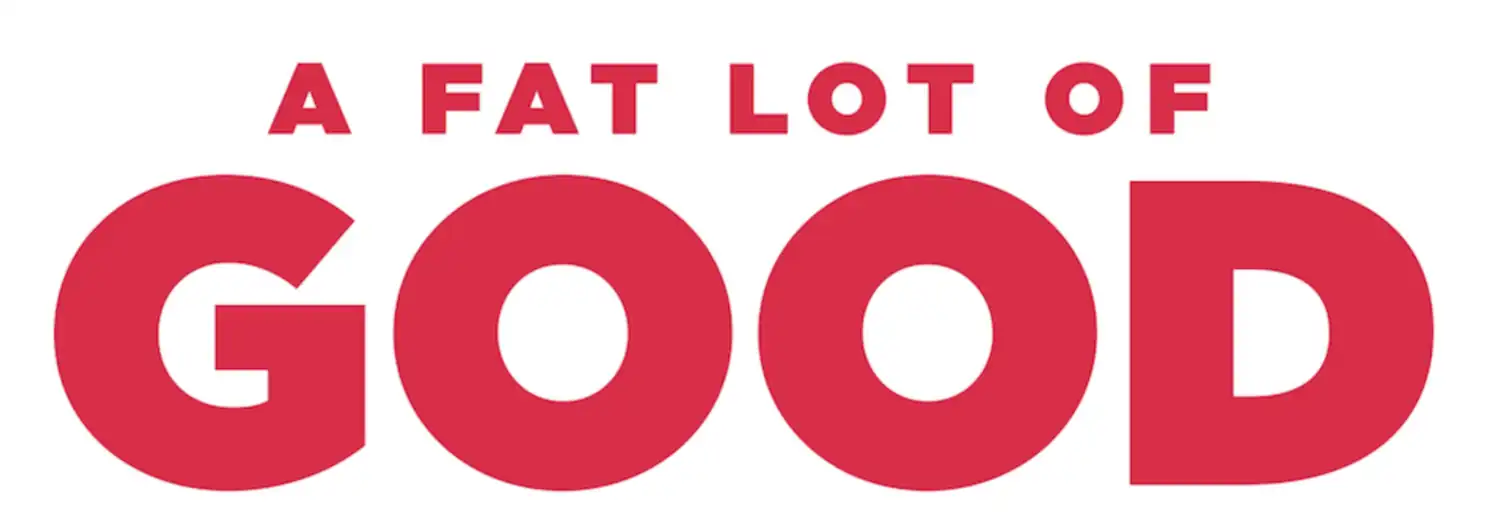I remember the day I decided to try the carnivore diet. Excited about the potential benefits, I dove in headfirst, completely unaware of the electrolyte rollercoaster I was about to ride. Within days, I found myself battling headaches, muscle cramps, and an overwhelming fatigue that left me questioning my decision. Little did I know, I was experiencing the consequences of electrolyte imbalance – a common yet often overlooked aspect of this meat-based eating plan.
Electrolyte balance is crucial for optimal health and performance on a carnivore diet, as the elimination of plant-based foods can significantly alter your body's mineral intake and retention, potentially leading to deficiencies or imbalances that may impact various bodily functions if not properly managed.
Let's dive into the world of electrolytes and explore why they're so important, especially when you're following a carnivore diet.
What Are Electrolytes and Why Do They Matter?
Electrolytes are minerals in your blood and other bodily fluids that carry an electric charge. These tiny powerhouses play a crucial role in maintaining various bodily functions, from hydration and muscle contraction to nerve signaling and pH balance. Think of them as the spark plugs of your body's engine – without them, things just won't run smoothly.
The main electrolytes include sodium, potassium, magnesium, and calcium. Each of these minerals has a specific job to do, and when they're out of balance, you can feel the effects throughout your entire body. Ever experienced muscle cramps after an intense workout? That's likely due to an electrolyte imbalance.
The Carnivore Diet: A Brief Overview
Before we delve deeper into electrolytes, let's take a moment to understand the carnivore diet. This eating plan is exactly what it sounds like – a diet consisting entirely of animal products. Meat, fish, eggs, and sometimes dairy are on the menu, while fruits, vegetables, grains, and all plant-based foods are off-limits.
Proponents of the carnivore diet claim benefits such as weight loss, improved mental clarity, and reduced inflammation. However, like any restrictive diet, it comes with its own set of challenges – and electrolyte balance is one of the biggest hurdles carnivore dieters face.
How Does the Carnivore Diet Affect Electrolyte Balance?
When you switch to a carnivore diet, you're not just changing what you eat – you're fundamentally altering your body's mineral intake and retention. This shift can have a significant impact on your electrolyte balance, affecting each key mineral in different ways:
Sodium: The Double-Edged Sword
On a carnivore diet, your sodium needs may actually increase. Why? Because when you eliminate carbohydrates, your body retains less water, and along with that water goes sodium. This is why many people experience a rapid initial weight loss on low-carb diets – it's mostly water weight. But don't be fooled into thinking this is a good thing. Adequate sodium is crucial for maintaining proper blood pressure, nerve function, and muscle contraction.
Potassium: The Overlooked Electrolyte
While meat does contain potassium, the amounts are often lower than what you'd get from a diet that includes fruits and vegetables. Potassium is essential for heart function, muscle contractions, and maintaining proper fluid balance. A deficiency can lead to weakness, fatigue, and even heart palpitations.

Magnesium: The Miracle Mineral
Magnesium is involved in over 300 enzymatic reactions in the body, including energy production, protein synthesis, and muscle and nerve function. While meat contains magnesium, the levels may not be sufficient to meet your body's needs, especially if you're physically active.

Calcium: Not Just for Your Bones
Calcium is well-known for its role in bone health, but it's also crucial for muscle function, nerve transmission, and blood clotting. While dairy products are rich in calcium, not all carnivore dieters include dairy in their meal plans, which can lead to potential deficiencies.

Surprising Benefits of Proper Electrolyte Balance on a Carnivore Diet
Maintaining the right electrolyte balance can unlock a range of benefits that might surprise you. Let's explore some of the advantages you might experience when you get your electrolytes in check:
Electrolytes Can Boost Your Athletic Performance
Absolutely! When your electrolytes are balanced, your muscles function more efficiently, allowing you to push harder and recover faster. I've personally noticed a significant improvement in my workouts since paying more attention to my electrolyte intake. Whether you're a weekend warrior or a competitive athlete, proper electrolyte balance can give you that extra edge.
Electrolyte Balance Affects Your Mental Clarity
You might be surprised to learn that electrolytes play a crucial role in cognitive function. Adequate levels of sodium and potassium are essential for proper nerve signaling in the brain. When these minerals are in balance, you may experience improved focus, better memory, and overall mental sharpness. It's like upgrading your brain's operating system!
a Link Between Electrolytes and Digestion
Indeed there is! Proper electrolyte balance is crucial for maintaining optimal digestive function. Sodium, for instance, is necessary for producing stomach acid, while magnesium helps regulate muscle contractions in the digestive tract. By ensuring you have the right electrolyte balance, you may find that your digestion improves, reducing issues like constipation or bloating that some carnivore dieters experience.
Balancing Your Electrolytes Prevent the Dreaded ‘Keto Flu'
Here's a little-known fact: many of the symptoms associated with the ‘keto flu' – headaches, fatigue, and muscle cramps – are actually signs of electrolyte imbalance. By proactively managing your electrolyte intake, you can potentially sidestep these unpleasant side effects altogether, making your transition to a carnivore diet much smoother.
Potential Risks of Electrolyte Imbalance in Carnivore Dieters
While the benefits of proper electrolyte balance are compelling, the risks of imbalance are equally important to understand. Let's take a look at some of the potential issues you might face if your electrolytes go awry:
Muscle Cramps
If you're experiencing frequent muscle cramps or weakness, it might not be just from your intense gym sessions. Electrolyte imbalances, particularly low levels of magnesium and potassium, can lead to muscle cramps and weakness. This can not only affect your athletic performance but also your daily activities.
Your Heart may Be at Risk
This might sound alarming, but it's crucial to understand: severe electrolyte imbalances can lead to irregular heartbeats. Your heart relies on a delicate balance of electrolytes to maintain its rhythm. While extreme imbalances are rare, it's important to be aware of this potential risk and to listen to your body.
Headaches
If you're plagued by frequent headaches or persistent fatigue on your carnivore diet, electrolyte imbalance could be the culprit. These symptoms are often early warning signs that your body's mineral balance is off. Paying attention to these signals and adjusting your electrolyte intake accordingly can make a world of difference in how you feel day-to-day.
Electrolyte Imbalance Be Messing With Your Digestion
Digestive issues like constipation or diarrhea can be frustrating and uncomfortable. While the carnivore diet itself can affect digestion, electrolyte imbalances can exacerbate these problems. Proper levels of magnesium and sodium, in particular, are crucial for healthy digestive function.
How Can You Maintain Electrolyte Balance on a Carnivore Diet?
Now that we understand the importance of electrolytes and the potential risks of imbalance, let's explore how you can maintain proper electrolyte levels while following a carnivore diet:
Are You Choosing the Right Foods?
While the carnivore diet is restrictive, there are still ways to optimize your electrolyte intake through food choices. Opt for mineral-rich meats like organ meats and bone broth. If you include dairy in your carnivore diet, cheese and full-fat yogurt can be good sources of calcium. Remember, variety is key – don't just stick to muscle meats.
Should You Consider Supplementation?
In some cases, food alone may not be enough to meet your electrolyte needs. This is where supplementation can come in handy. Electrolyte powders or tablets can be a convenient way to ensure you're getting adequate amounts of these crucial minerals. However, it's important to choose high-quality supplements and to consult with a healthcare professional before starting any new supplementation regimen.
Is Your Hydration Strategy Helping or Hurting?
Proper hydration goes hand in hand with electrolyte balance. However, simply drinking more water isn't always the answer. In fact, overhydrating without replacing electrolytes can lead to further imbalances. Consider adding a pinch of high-quality salt to your water or opting for mineral-rich sparkling water to help maintain electrolyte balance while staying hydrated.
Common Misconceptions About Electrolytes on a Carnivore Diet
As with any dietary approach, there are several myths and misconceptions surrounding electrolytes on a carnivore diet. Let's debunk some of these:
“You Don't Need to Worry About Electrolytes on a Carnivore Diet”
This couldn't be further from the truth. In fact, due to the elimination of many electrolyte-rich plant foods, carnivore dieters often need to pay extra attention to their electrolyte intake.
“All Meat Contains Adequate Electrolytes”
While meat does contain electrolytes, the amounts and types can vary greatly. Relying solely on muscle meats may not provide all the electrolytes your body needs in the right proportions.
“Salt is Bad for You”
This myth has been debunked time and time again. While excessive sodium intake can be problematic for some individuals, adequate sodium is crucial for proper bodily function, especially on a low-carb diet like the carnivore diet.
my Personal Tips for Optimizing Electrolyte Intake on a Carnivore Diet
As someone who has navigated the electrolyte challenges of a carnivore diet, I've picked up a few tricks along the way. Here are some personal tips that have helped me maintain proper electrolyte balance:
- Start your day with a cup of bone broth. It's rich in minerals and can help replenish electrolytes first thing in the morning.
- Don't fear salt. I liberally salt my meals and even add a pinch to my water throughout the day.
- Consider incorporating organ meats into your diet. They're nutrient powerhouses and can help fill any mineral gaps.
- Listen to your body. If you're experiencing symptoms like headaches, fatigue, or muscle cramps, it might be time to reassess your electrolyte intake.
- Stay consistent. Maintaining electrolyte balance is an ongoing process, not a one-time fix.
In conclusion, while the carnivore diet can offer potential benefits, it's crucial to pay attention to your electrolyte balance. By understanding the role of these essential minerals, recognizing the signs of imbalance, and taking proactive steps to maintain proper levels, you can optimize your health and potentially enhance your experience on the carnivore diet.
Remember, everybody is different, and what works for one person may not work for another. It's always a good idea to consult with a healthcare professional before making significant changes to your diet or supplementation routine. With the right approach, you can harness the power of electrolytes to support your health and well-being on your carnivore journey.


